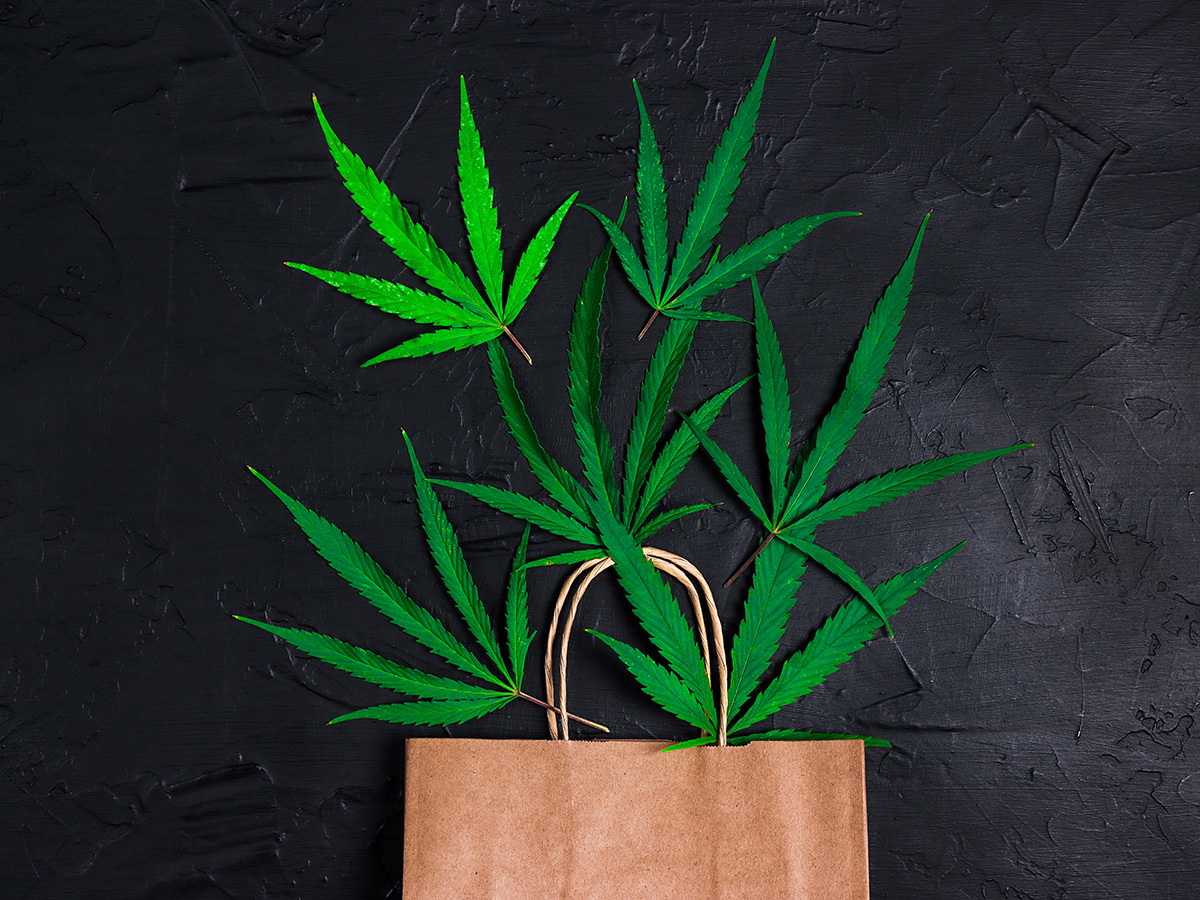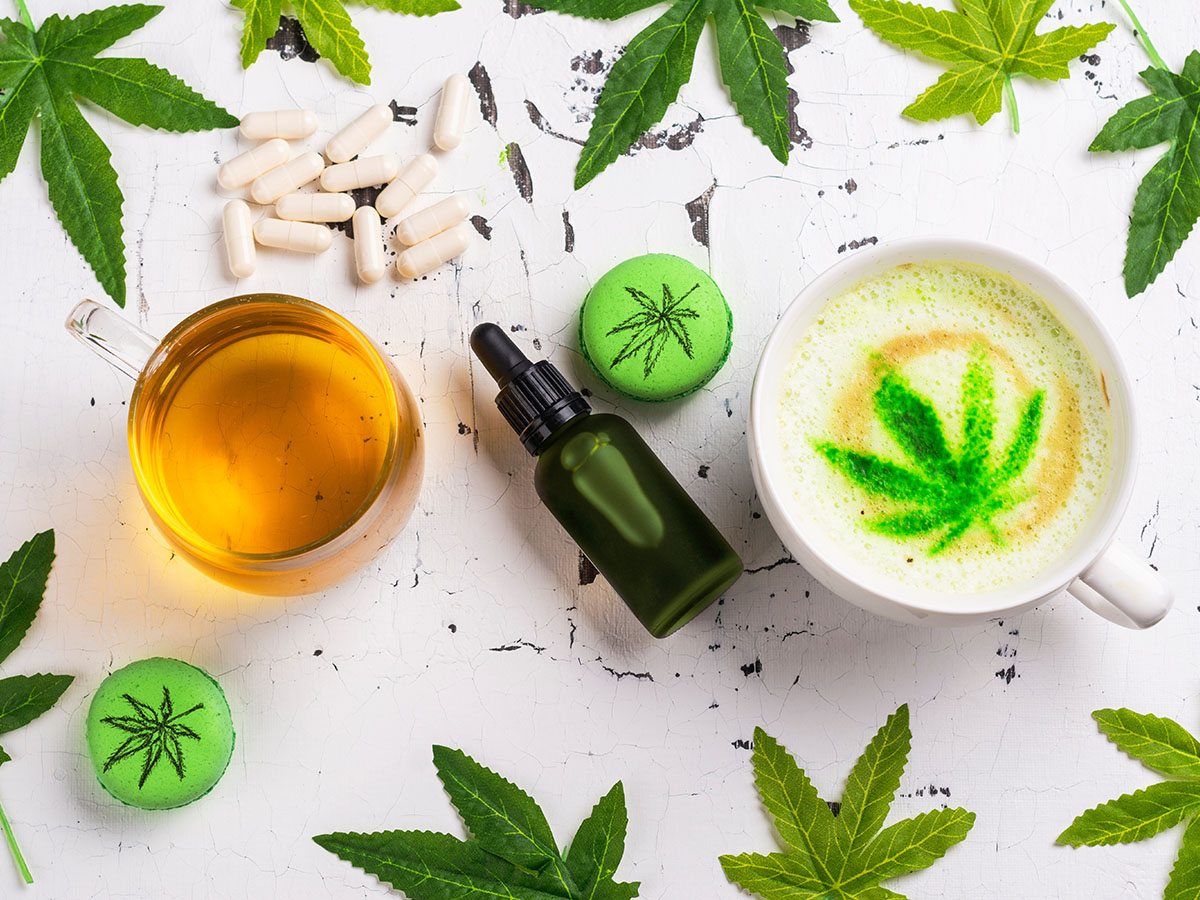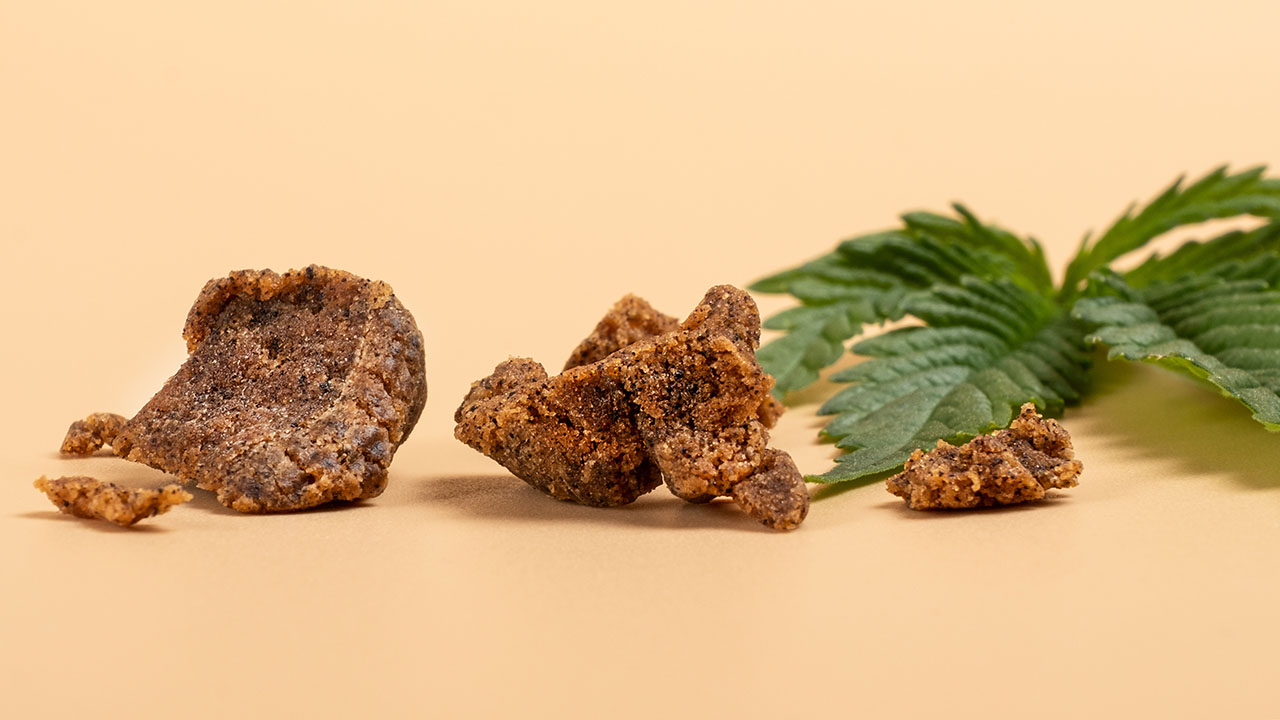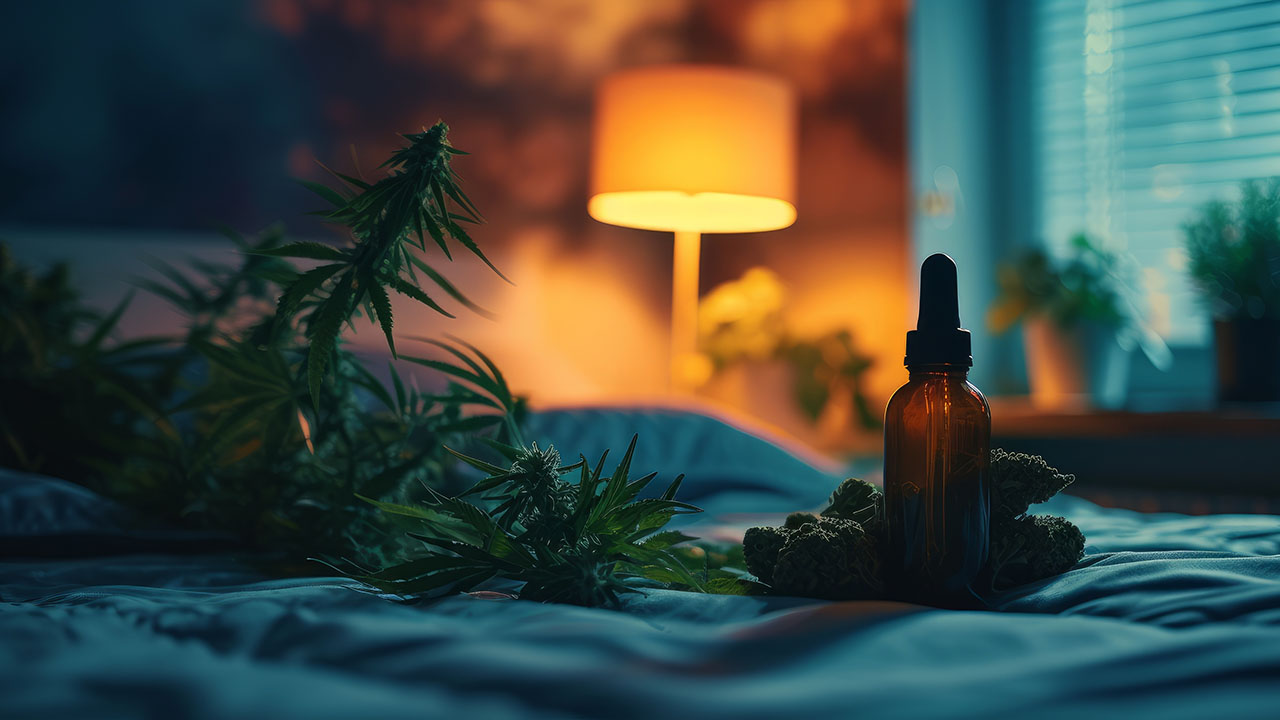
Cannabis & Sleep: What We Know and What We Don’t
March 07, 2024
Are you one of those people who toss and turn at night, desperately trying to catch some ZZZs? If so, you're not alone. Sleep issues plague millions of individuals worldwide, leading them to seek solutions in various forms, including the use of cannabis. But what's the deal with cannabis and sleep? Does it really help, or is it just another fad? Let's dive into the research and separate fact from fiction.
What Does the Research Say About THC & Sleep?
Whether you’re new to the cannabis world or you’ve been here for a while, you’ve likely heard of the sativa vs indica debate. Sativa has a reputation for being uplifting while indica has a reputation for chilling you out. We know now that those qualities are largely anecdotal at best and fabricated at worst.1 We aren’t sure if these effects people experience have anything to do with the plant's genetic makeup or if it’s a placebo effect based on expectations.
Then, you might have heard whispers about THC (tetrahydrocannabinol) and CBD (cannabidiol) and their potential to induce sleep. However, when we peek into the realm of scientific research, we find a surprisingly sparse landscape. While we can see cannabinoids can react with the body and may affect sleep,2 they could also just cause the munchies. Moreover, we aren’t sure what complications might interfere with that process, such as existing conditions, tolerance levels, and more. In short, we need to do a lot more research.

Cannabis May Promote Sleep
So where does that leave us? Well, right now we can only say that cannabis may promote sleep. One study, intended to evaluate the effects of medical marijuana on pain levels, also showed that some of the consumers also found medical cannabis useful in managing sleep problems.3 After dosages were adjusted for age, sex, medication use, and pain level of the patient, medical cannabis seemed to do a better job of ensuring consumers could get more undisturbed—that is, not waking up as much—compared to non-medical cannabis consumption. Unfortunately, there is also evidence that tolerance levels can interfere with this potential benefit, meaning that it’s possible the more you use medical cannabis for this issue, the less effective it will be.
Exploring Cannabis & Sleep
So, what do you do if you want to see if cannabis will help you with sleep? First, you need to understand that it's a complex web of interactions between cannabinoids, terpenes, and your body's endocannabinoid system. Some research indicates that cannabis could aid in falling asleep faster, staying asleep longer, or even experiencing more restorative sleep cycles.4 But everyone is different. Here are a few factors to consider when choosing a strain to see if it helps you sleep:
Pick the Right Cannabinoid
Not all cannabinoids are created equal when it comes to sleep. There's CBN (cannabinol), CBD, and, of course, THC. Each has its own set of potential effects on sleep:
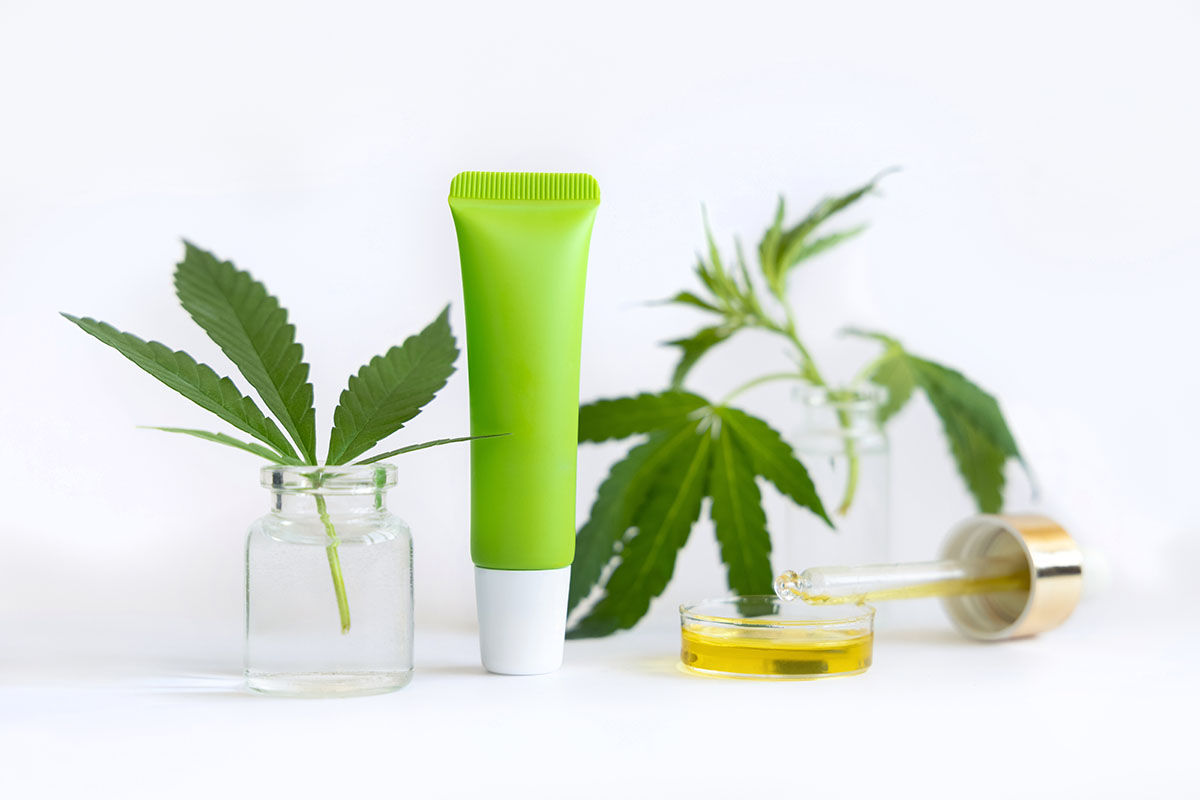
- CBN: Research suggests that consuming CBN for sleep may promote relaxation and aid in falling asleep—particularly when combined with THC.5 Studies have indicated that CBN may have potential therapeutic benefits in other disorders, but extensive research needs to be done to understand with any certainty if CBN offers benefits for sleep troubles or any other condition.
- CBD: Some research suggests CBD may help improve sleep quality because of its ability to help regulate certain systems in the body.6 CBD topicals may also offer some discomfort and soreness in muscles and joints, leading to better sleep. Without further research, we can’t definitively say what CBD can do for certain conditions, including sleep.
- THC: While some individuals report experiencing better sleep after consuming THC, the research on its direct impact on sleep remains limited. Taking THC for sleep may influence sleep patterns and promote relaxation, but its effects can vary depending on dosage and individual tolerance.1
Understanding the distinct properties of each cannabinoid can help you make informed decisions when choosing cannabis products for sleep support. However, it's important to note that your body’s response to cannabinoids may vary, and you should always talk to your doctor first, especially if you have underlying medical conditions or concerns.
Terpenes Matter
It's not just about cannabinoids; terpenes also play a crucial role in the cannabis-sleep equation. These aromatic compounds not only give cannabis its distinct smell and flavor but may also contribute to its therapeutic effects through the entourage effect—a theory that everything in cannabis, including cannabinoids, terpenes, and flavonoids, contribute to its effects. Certain terpenes, like pinene and linalool, are believed to possess properties that could enhance the sleep-inducing potential of cannabis.7
Timing is Key
When it comes to using cannabis for sleep, timing is everything.4 If you smoke cannabis, you will feel the effects of it faster. If you consume cannabis edibles for sleep, there will be a delay between when you eat it and when you feel its effects. It's all about finding the sweet spot—navigating the delicate balance between when your body starts noticing the effects and what effects last long enough to potentially help you sleep through the night. Only you can determine what will work right for you.
Consumption Methods
The age-old debate: smoking/vaping vs edibles. Each method of consumption has its pros and cons if you’re trying to see if cannabis works to help you sleep.8 The choice ultimately boils down to personal preference and lifestyle. Some swear by the quick onset of smoking or vaping, while others prefer how long edibles take to create an effect because it allows them to finish up their nightly routine before lying down. It's a game of trial and error to find what works best for you.
Answering FAQs about Cannabis & Sleep
Now, let's address some burning questions about cannabis and its impact on sleep. Here are a few insights based on current research and anecdotal evidence:
Does CBN help with sleep?
CBN has garnered attention for its potential sleep-inducing properties. Some research suggests that CBN may act as a sedative, promoting relaxation and aiding in falling asleep. However, further studies are needed to fully understand its effects on sleep quality and duration.
Does THC help with sleep?
THC is one of the primary cannabinoids found in cannabis and is known for its psychoactive effects. While THC may have sedative effects, it could also be stimulating to someone who has never indulged or who has consumed large doses.4 Because there’s no clear evidence that THC is effective in helping with sleep, it’s best to just see how you feel when you consume it.
Does CBD help with sleep?
CBD has gained popularity for its purported therapeutic properties, including its potential to promote relaxation and reduce anxiety.4 That said, for some people small amounts of CBD can have the opposite effect, causing alertness at low doses. It’s also possible that CBD and THC can work together in unique ways to affect sleep, so it’s important to try different dosages to know what works for you.
Using Cannabis for Sleep
There's still much we don't know about the relationship between cannabis and sleep. Early research is promising, but it's essential to approach the topic with a healthy dose of skepticism and a willingness to explore further. So, if you're struggling to catch those elusive ZZZs, cannabis might work for you, and it might not. Because of the uncertainty, we recommend trying different strains and products to see if you can find something that works for you.
Sources:
1. “Does weed help you sleep?” The Washington Post, April 3, 2023, https://www.washingtonpost.com/wellness/2023/04/03/weed-sleep-marijuana-cbd/
2. “Cannabinoids, Endocannabinoids and Sleep,” Frontiers in Molecular Neuroscience, July 22, 2020, https://pmc.ncbi.nlm.nih.gov/articles/PMC7388834/
3. “Medical cannabis and insomnia in older adults with chronic pain: a cross-sectional study,” BMJ Supportive & Palliative Care, November 23, 2020, https://spcare.bmj.com/content/10/4/415.info
4. “Cannabis for Sleep,” Sleep Foundation, April 2, 2024, https://www.sleepfoundation.org/sleep-aids/cannabis-and-sleep
5. “CBN for Sleep,” Sleep Foundation, November 8, 2023, https://www.sleepfoundation.org/sleep-aids/cbn-for-sleep
6. “Can Cannabis Help You Get a Good Night’s Sleep?” Forbes, March 17, 2021, https://www.forbes.com/sites/ajherrington/2021/03/17/can-cannabis-help-you-get-a-good-nights-sleep/?sh=5a419b82106b
7. “A Review of the Potential Use of Pinene and Linalool as Terpene-Based Medicines for Brain Health: Discovering Novel Therapeutics in the Flavours and Fragrances of Cannabis,” Frontiers in Psychiatry, August 25, 2021, https://www.frontiersin.org/journals/psychiatry/articles/10.3389/fpsyt.2021.583211/full
8. “6 Best Low THC Strains for Sleep,” Leafwell, October 7, 2024, https://leafwell.com/blog/best-low-thc-strains-for-sleep
Please consume responsibly. This product may cause impairment and may be habit forming. There may be health risks associated with consumption of this product. State laws impact what dispensaries can and can’t sell to recreational customers and medical marijuana patients. Not every type of product, consumption method, dosage form, or potency mentioned on this blog will be permitted in all locations.
This content is not intended as medical advice. The information provided is meant to encourage cannabis education, not replace direct patient-healthcare professional relationships. Always consult your primary care physician or other healthcare provider prior to using cannabis products for treatment of a medical condition. Any statements contained herein have not been evaluated by the Food and Drug Administration. Products referenced are not intended to diagnose, treat, cure, or prevent any disease. Products are only available where consumption of cannabis is legal.
